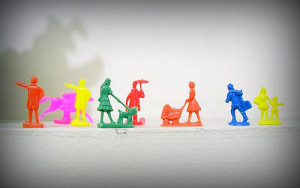 Human Behavior Theory is a set of global theories that are used to describe many different kinds of cognitive and social phenomena. If you are studying for a degree in psychology, or you simply have chosen to take a course in this area of study because it peaks your interest, it is important to understand that theories that describe human behaviors are standard to most programs. While there are too many specific theories to name that center around human behavior, the influential ones are the ones that you will need to be familiar with. Read on and get a brief breakdown of the psychology theories that best explain what drives human behavior from different perspectives.
Human Behavior Theory is a set of global theories that are used to describe many different kinds of cognitive and social phenomena. If you are studying for a degree in psychology, or you simply have chosen to take a course in this area of study because it peaks your interest, it is important to understand that theories that describe human behaviors are standard to most programs. While there are too many specific theories to name that center around human behavior, the influential ones are the ones that you will need to be familiar with. Read on and get a brief breakdown of the psychology theories that best explain what drives human behavior from different perspectives.
Understanding Theory and How it Applies to Psychology
Some believe theories to be nothing more than hunches or guesses, but in the world of psychology it is much more than that. A scientific theory is actually a hypothesis that is then backed by scientific evidence gathered in studies. If evidence appears that disproves a theory, the hypothesis is then modified to account for the facts. In the world of psychology, a theory has to describe a behavior and must make predictions about future behaviors.
The purpose of the theories that are taught to undergraduate, graduate and post-graduate students are to explain and predict different aspects of behavior, according to the American Psychological Association. Only theories that have not yet been disproved are well-accepted, but it is possible for a theory to be rejected or just partially accepted by peers in the discipline.
What Are the Most Accepted Psychology Theories?
Many theories that are widely accepted by psychologists today have been influenced by other theories. It is not unusual for a professional to take a new approach to influential theories to describe aspects of behavior that the original theory could not. Two popular theories that are still accepted today are Freud’s theory on Psychosexual Development and Erikson’s theory on Psychosocial Development.
Psychosexual Development
According to Sigmund Freud’s controversial theory, personality is developed during adolescence. The driving force of the development is the libido early experiences will influence the child and how they act as an adult. Freud postulates that as long as all of the psychosexual pleasure-seeking stages are complete by age 5, the adult will not possess personality defects.
Psychosocial Development
Erikson agreed with Freud that personality is developed in stages. Instead of psychosexual stages, Erikson believed that the stages were more centered around being social and could affect personality throughout a person’s entire life. This theory is one of the best-known developments and is much more accepted. Through social interaction, Erikson believes people develop an ego identity. When people have new experiences, their ego identity can change.
There are far too many theories to list. Some describe how people explain the behavior of others (attribution theory) or how external incentives can change the way someone is internally motivated (motivation crowd theory). If you are interested in learning more about why psychologists believe we act like we do in certain situations, it can be very interesting to read more about influential theories.
Related Resource: Case Coordinator in Social Work
Behavioral theories are often known as behaviorism. The theories that have been developed over the years can really help with therapies and conditioning patients. Read more about human behavior theory and why people behave specific ways, and then you can help people develop skills so that they can fix specific issues.
 Follow
Follow